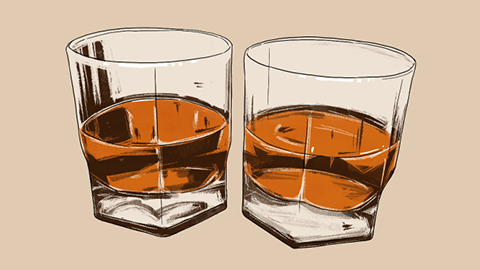How to quit alcohol dependence
Overcoming alcohol dependence requires a combination of professional guidance and self-management, and can generally be achieved through medical intervention, developing a gradual withdrawal plan, restructuring daily habits, building a support system, and engaging in psychological adjustment. If in doubt, it is recommended to seek medical consultation early. Detailed analysis is as follows:

1. Seek Medical Intervention: Visit specialized medical institutions where doctors can assess the degree of dependence, prescribe withdrawal medications when necessary to alleviate symptoms such as anxiety and tremors, screen for organ damage caused by alcohol, and develop a personalized treatment plan.
2. Develop a Gradual Withdrawal Plan: Avoid sudden cessation of alcohol, which may lead to dangerous consequences. Gradually reduce both the amount and frequency of drinking according to individual circumstances. Set phased goals—such as reducing the number of drinking episodes per week or lowering the amount consumed per occasion—and progressively transition toward complete abstinence.
3. Restructure Daily Habits: Avoid environments and social situations associated with drinking. Replace drinking behaviors with healthy activities such as exercise, reading, or gardening. Maintain regular sleep and eating patterns to reduce psychological reliance on alcohol.
4. Build a Support System: Inform family members and friends about your intention to quit drinking to gain emotional encouragement and accountability. Join peer support groups for addiction recovery, share experiences with others facing similar challenges, and strengthen determination and confidence throughout the quitting process.
5. Engage in Psychological Adjustment: Work with counselors to identify underlying psychological factors contributing to alcohol dependence. Learn stress-coping and emotional regulation techniques to manage irritability, depression, and other emotions during withdrawal, thereby consolidating long-term abstinence.
Be vigilant for severe withdrawal symptoms during the quitting process. If symptoms such as confusion, seizures, or high fever occur, seek immediate medical attention. Never abruptly stop drinking or misuse medications without supervision. Progress should be made steadily under professional guidance. Long-term adherence to a healthy lifestyle and psychological adjustment can significantly reduce the risk of relapse.







